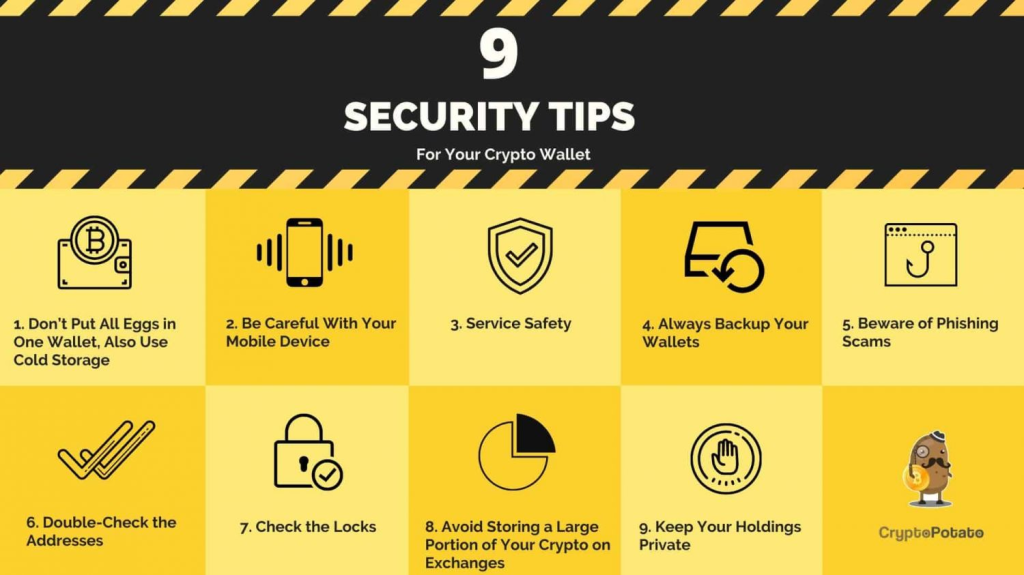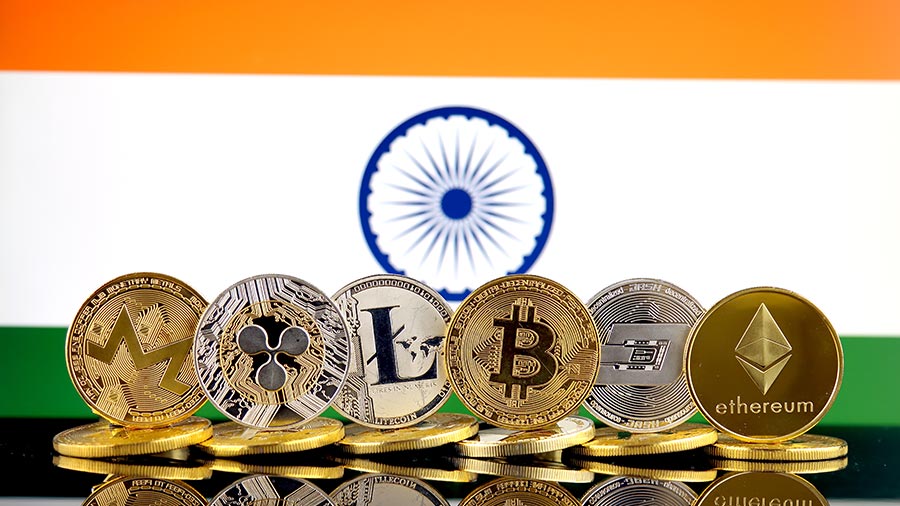AUTHOR : EMILY
DATE : 24/08/2024
Cryptocurrency[1] investments have gained significant traction in India, with more people recognizing the potential for high returns in this rapidly evolving digital asset[2] class. However, as with any investment, the rewards come with risks, particularly in the form of security threats. Protecting your cryptocurrency holdings from cyber threats, fraud, and regulatory uncertainties is crucial for safeguarding your investment. In this blog, we’ll explore the best practices for safeguarding crypto investments[3] in India to ensure financial resilience.
Understanding the Security Risks
Before diving into the security measures, it’s essential to understand the various risks associated with cryptocurrency investments:
- Cyber Attacks: Cryptocurrency exchanges, wallets[4], and individual investors are prime targets for hackers. Phishing attacks, malware, and ransomware can lead to the loss of funds.
- Scams and Fraud: The anonymity and lack of regulation in the cryptocurrency space make it ripe for scams. Ponzi schemes, fake ICOs, and fraudulent exchanges are common.
- Regulatory uncertainty: In India, the legal landscape for cryptocurrencies is still evolving. Changes in regulations[5] can impact the security and legality of your investments.
- Loss of Private Keys: Cryptocurrencies
- are secured by private keys Losing your private key means losing access to your funds permanently.

Best Practices for Securing Cryptocurrency Investments
1. Use Reputable Exchanges
When buying or selling cryptocurrencies, it’s essential to use reputable exchanges. Here’s what to look for:
- Security Features: Ensure the exchange uses robust security measures like two-factor authentication (2FA), encryption, and cold storage of assets.
- Regulatory Compliance: Choose exchanges that comply with local regulations and have a transparent operating history.
- User Reviews: Research user experiences and reviews to gauge the reliability of the exchange.
Some popular and trusted exchanges in India include Wazir X, Coin DC X, and Zeb Pay.
2. Enable Two-Factor Authentication (2FA)
Two-factor authentication adds an extra layer of security to your accounts. Even if someone gets hold of your password, they won’t be able to access your account without the second factor, usually a code sent to your mobile device. Most exchanges and wallets support 2FA, so make sure to enable it.
3. Use a Hardware Wallet
A hardware wallet is a physical device that stores your private keys offline, making it immune to online hacking attempts. Popular hardware wallets like Ledger Nano S and Trezor offer robust security features and support multiple cryptocurrencies. Although hardware wallets require an upfront investment, they are worth the cost for the added security they provide.
4. Keep Software Updated
Ensure that your wallet software,[1] operating system, and any other tools you use for managing cryptocurrencies are up-to-date. Software updates often include security patches that protect against the latest threats.
5. Be Wary of Phishing Attacks
Phishing is one of the most common methods hackers use to steal cryptocurrency. Phishing involves tricking you into giving away your private keys or login credentials by pretending to be a legitimate service. To avoid phishing attacks:
- Check URLs: Always verify the URL before entering your credentials. Scammers often create websites that look identical to legitimate ones.
- Avoid clicking on unknown links: Be cautious about clicking on links in emails, messages, or social media posts, especially if they are unsolicited.
- Use Bookmarking: Bookmark the official websites of your cryptocurrency exchanges and wallets to avoid mistyping the address.

6. Diversify Your Investments
Just like with traditional investments[2], diversification is key to managing risk in the cryptocurrency space. Don’t put all your money into one type of cryptocurrency or store it in one place. Spread your investments across different cryptocurrencies and wallets to minimize the risk of total loss in case of a security breach.
7. Avoid Sharing Private Information
One of the cardinal rules of cryptocurrency security is never to share your private keys or seed phrases with anyone. Legitimate services will never ask for this information. If anyone requests this information, it’s likely a scam.
8. Stay Informed About Regulations
The regulatory environment for cryptocurrencies in India is continuously evolving. Stay informed about the latest government guidelines and legal developments related[3] to cryptocurrencies. This will help you understand your rights and obligations as an investor and adjust your strategies accordingly.
9. Consider Using a VPN
When accessing your cryptocurrency accounts, especially on public Wi-Fi, consider using a virtual private network (VPN). A VPN secures your internet connection by encrypting it, which makes it harder for hackers to access your data.
10. Backup Your Wallet
Regularly backing up your cryptocurrency wallet is crucial for protecting your assets. Store your backup in a secure, offline location, like a USB drive or a piece of paper in a safe. If your device is lost, stolen, or damaged, you can restore your wallet using the backup.
11. Be Cautious with Mobile Wallets
While mobile wallets offer convenience, they are more vulnerable to hacking than hardware wallets. If you use a mobile wallet, make sure it’s from a reputable provider and has strong security features[4]. Avoid storing large amounts of cryptocurrency in mobile wallets.
12. Use Multi-Signature Wallets
Multi-signature wallets demand the use of multiple keys to validate a transaction. This adds an extra layer of security, as no single person can move funds without the approval of others. This feature is particularly useful for businesses or joint accounts.
13. Monitor Your Accounts Regularly
Regularly check your cryptocurrency accounts for any unauthorized transactions. Early detection of suspicious activity can help you take swift action to mitigate potential losses.
14. Beware of Pump-and-Dump Schemes
Pump-and-dump schemes are common in the cryptocurrency world[5]. Scammers artificially inflate the price of a cryptocurrency by spreading false information, then sell off their holdings when the price peaks, leaving others with worthless tokens. Always do your research before investing in any cryptocurrency, and be wary of too-good-to-be-true offers.
15. Consider Legal Consultation
Given the complexities and evolving nature of cryptocurrency regulations in India, it might be wise to consult with a legal expert who specializes in cryptocurrencies. They can provide guidance on tax implications, legal risks, and compliance with local laws.

Conclusion
Securing your cryptocurrency investments in India requires a combination of technological safeguards, informed decision-making, and staying updated on regulatory changes. By following the best practices outlined in this blog, you can significantly reduce the risks associated with cryptocurrency investments and protect your assets from potential threats. Remember, in the world of digital assets, security is paramount. Taking proactive steps today can save you from potential losses in the future.
FAQs
1. What is the safest way to store my cryptocurrency in India?
- One of the most secure methods to store your cryptocurrency is by using a hardware wallet. These devices keep your private keys offline, reducing the risk of hacking. Additionally, make sure to enable two-factor authentication (2FA) on all accounts and regularly update your software.
2. How can I protect my cryptocurrency from scams?
- To avoid scams, only use reputable exchanges and wallets, never share your private keys or seed phrases, and be wary of unsolicited offers or schemes that promise guaranteed returns. Before entering any sensitive information, always ensure that the authenticity of websites and emails is verified.
- Unfortunately, if you lose your private keys, you lose access to your cryptocurrency permanently. To prevent this, store backups of your private keys in a secure and offline location, such as a hardware wallet or a paper backup stored in a safe.
4. Are cryptocurrency investments legal in India?
- As of now, cryptocurrency investments are legal in India, but the regulatory landscape is still evolving. It’s crucial to stay informed about the latest government regulations and guidelines to ensure compliance and protect your investments.
5. How can I secure my cryptocurrency transactions?
- Secure your transactions by using multi-signature wallets, which require multiple approvals before any transaction is completed. This adds an extra layer of protection, especially for businesses or joint accounts.

